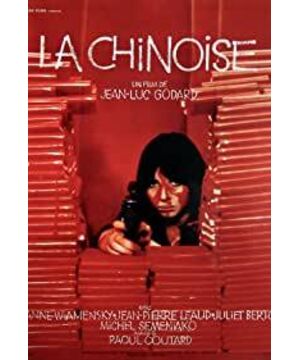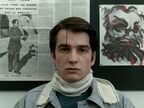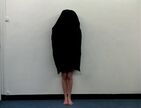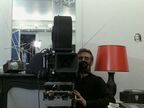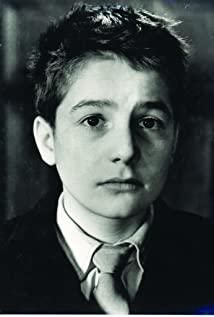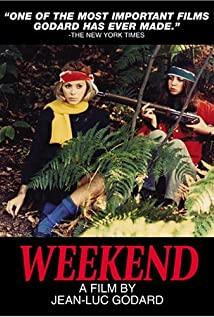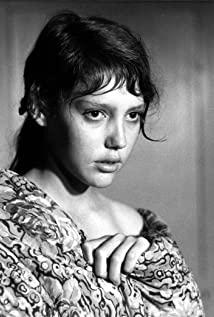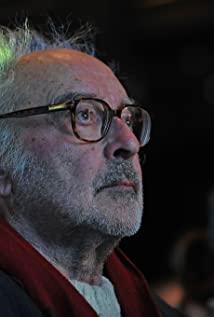By contrast, Véronique (Anne Wiazemsky), the core member of a Marxist-Leninist student group in The Chinese Girl (the film is usually deemed a prescience of May 68), represents another type of rebel who exercise freedom in the name of revolutionary ideals . As Camus proposes, rebellion always goes beyond the individual, because when the rebel rejects established values, s/he also affirms something else is worthwhile—the rebel says both “no” and “yes” (Camus, 1991, p.13- 22). As a logical extension of that affirmative aspect of rebellion, revolution encourages individuals to struggle for new values with freedom, but this freedom is paradoxical: on the one hand, the revolutionary subject must believe in radical freedom, since only it can authorize them to invalidate and destroy the old social system, on the other hand,freedom should be limited in order to meet the conditions of new values. It is this confliction between the two facets of revolutionary freedom that makes Véronique's terrorist plan of bombing universities worth thinking through.
Although these young political radicals in the film call themselves Marxist-Leninists and Maoists, there is a remarkable link between them and Russian nihilists in the late nineteenth century, not only because of the references to nihilists' revolutionary cell in Dostoyevsky's novel Demons, but also for they derive their freedom to act primarily from a sense of nothingness. Like Michel, Véronique also believes “all or nothing”, while instead of keeping this idea to herself, she takes it for a manifesto to the whole society. Though she evaluates French political situations and educational system as “not awful, just bad” (in her conversation with the political philosopher Jeanson), it seems to her that destruction is necessary even at the cost of the heinous mass murder:only through emptying all of the meanings at present can she imagine an alternate future of the society. In other words, she understands revolutionary freedom purely from the perspective of unconditioned negation which keeps the present in nothingness thereby rendering every choice possible to make for the future . Véronique's fascination for practicing radical freedom in revolution is precisely reflected in the train conversation between her and Jeanson. As a Marxist activist who used to support terrorism attacks in the Algerian War of Independence, Jeanson refutes Véronique's plan of bombing people to cause the closure of universities, for the reason that she has no idea about the ends—what will happen afterwards? In Jeanson's opinion, the ends which can remedy violence in revolution always come from people's will and the concept of majority.Hence, when explaining his support for Algerian terrorists, he points to “a whole people behind” and “sympathizers among the population”. Since Véronique's action is not upheld by any class or group, it has no content: Jeanson: You want independence. How many of you want it that way? You told me two or three. Véronique: But many people don't realize it yet. And we think for them. It's for them. Jeanson: You think you can make a revolution for others? Véronique: But you agree working is part of the struggle. Jeanson: But what is the struggle? Véronique: Look, if I want to know revolutionary theory and methods, I must participate in a revolution. Jeanson: You can participate, but you can 't invent one. However, the point here is that Véronique doubts if a revolutionary action needs content. She takes Russian nihilists as an example:people can really invent revolutions from nothing, because nobody can anticipate what the role of things happening now will play in the future on the basis of current judgements, convictions, or values (that is why she says they think for others). From this standpoint , if one suspends action, s/he must be inauthentic and escape her/his own freedom of making choices. This coincides with existentialist insights into freedom which attach great importance to unguaranteed future projects, and poses a question about the paradoxical relationship between freedom and revolution, or say, rebellion.if one suspends action, s/he must be inauthentic and escape her/his own freedom of making choices. This coincides with existentialist insights into freedom which attach great importance to unguaranteed future projects, and poses a question about the paradoxical relationship between freedom and revolution , or say, rebellion.if one suspends action, s/he must be inauthentic and escape her/his own freedom of making choices. This coincides with existentialist insights into freedom which attach great importance to unguaranteed future projects, and poses a question about the paradoxical relationship between freedom and revolution , or say, rebellion.
View more about La Chinoise reviews


